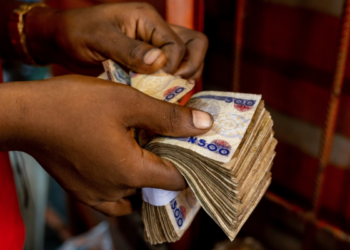The dreaded Covid-19 pandemic, which has significantly spread around the world and caused a lot of disruptions on the global economy, is expected to drive Sub-Saharan Africa into its first recession in 25 years.
This was disclosed in the World Bank’s latest Africa’s Pulse report, a twice-yearly economic update for the region, which was released on Thursday, April 9, 2020.
The report shows that the forecast for the Sub-Saharan Africa region is expected to decline from 2.4% in 2019 to between -2.1% to -5.1% in 2020.
The forecast came with a recommendation is made for African policymakers to focus on saving lives and protecting livelihoods by strengthening health systems and taking quick actions to minimize disruptions in food supply chains. According to Hafez Ghanem, Vice President for Africa, World Bank:
‘’The Covid-19 pandemic is testing the limits of societies and economies across the world and African countries are likely to be hit particularly’’.
‘’We are rallying all possible resources to help countries meet people’s immediate health and survival needs while also safeguarding livelihoods and jobs in the longer term – including calling for a standstill on official bilateral debt service payments which would free up funds for strengthening health systems to deal with Covid-19 and save lives, social safety nets to save livelihoods and help workers who lose jobs, support to small and medium enterprises, and food security”
(READ MORE: CBN pays $4.45 billion external debt to World Bank, others in 2-month)
An analysis from the report shows that the COVID-19 pandemic is going to cost the region between $37 billion and $79 billion in output losses this year. Sectors that will be affected by this includes: trade and value chain disruptions, decline in foreign remittances, tourism, foreign direct investment, foreign aid among others.

The GDP growth in the region, particularly in the 3 largest economies in Sub-Saharan Africa i.e. Nigeria, South Africa and Angola, is projected to decline sharply, due to persistent weak growth and investment.
The Coronavirus crisis can also potentially cause food security crisis in Africa, with agricultural production expected to contract between 2.6% in optimistic period and as much as 7% during trade blockages.
Food imports are expected to decline by as much as 25% or as little as 13% due to drop in local demand and high cost of transaction.
(READ MORE: World Bank deploys $150 billion to save the world from global meltdown)
The Bretton Wood institution has pledged about $160 billion in financial support over the next 15 months to help countries protect the poor and vulnerable, support businesses and aid economic recovery.
Africa has 10,956 confirmed cases of the Coronavirus, with 562 deaths and 1,149 recoveries so far.
The International Monetary Fund (IMF) and the World Bank Group have already rallied for bailout funds and debt relief for the poor and emerging countries as part of measures to help mitigate the impact of lockdowns and restrictions as a result of the coronavirus outbreak.
Nigeria had also announced its intention to borrow $6.9 billion from the multilateral agencies to help cushion the effect of the Coronavirus pandemic on the country’s economy. A breakdown of that shows that $3.4 billion will be from IMF, $2.5 billion from World bank and $1 billion from African Development Bank.






















Good evening Mr Olisa. Nice to have explain the future aspect of Our Economy. I hope our Government would listen and address the issues raised here. Thanks.
Is very unfortunate that Nigeria is going to fall in this category our leaders need to brace up